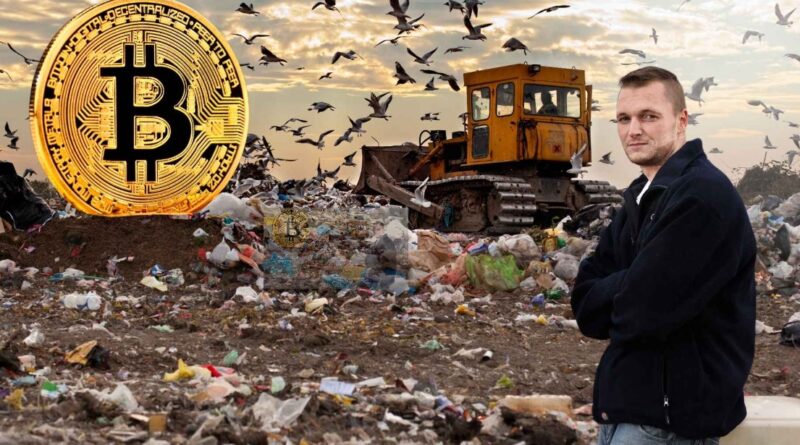Man Who Lost Bitcoin Hard Drive Finally Ends His Costly Search After a Decade
In the ever-evolving world of cryptocurrency, few stories are as infamous as that of the man who lost a bitcoin hard drive — James Howells. For over a decade, his accidental disposal of a device containing thousands of bitcoins has fascinated, bewildered, and even inspired debates about digital wealth and the limits of obsession.
In a final twist, Howells has now confirmed that he is officially giving up the search.
The Costly Mistake That Sparked a Global Obsession
James Howells, a former IT worker from Newport, Wales, made what he calls the “most expensive mistake of his life” in 2013 when he accidentally threw away a hard drive during a home clean-up. The device, as it turns out, held private keys to a wallet containing 8,000 bitcoins — an amount worth over $500 million USD at bitcoin’s peak in 2021.
At the time of the loss, the value of the coins was negligible. But as Bitcoin soared in value, the situation shifted from an inconvenience to a life-altering crisis. Howells began a relentless campaign to gain access to the local landfill where he believed the hard drive remained buried.

The Man Who Lost Bitcoin Hard Drive vs. Bureaucracy
For years, Howells pleaded with Newport City Council to allow him to excavate a section of the landfill where he believed the drive could be located. His proposals included using AI, robotic dogs, and expert consultants — even offering to fund the entire operation with private investors in exchange for a share of the recovered assets.
Despite these efforts, the city council repeatedly denied his requests, citing environmental, financial, and health risks.
In interviews, Howells often expressed frustration:
“I’ve offered them millions, I’ve offered to cover every cost, I’ve brought in environmental experts… but they won’t budge.”
Turning a Dream into a Sinking Cost
As bitcoin’s price continued to surge, Howells escalated his efforts. He built a team of engineers, lawyers, and environmental experts, some of whom previously worked with NASA and on data recovery missions. In total, he claimed to have raised more than $11 million to support his search plan.
But the task was Herculean. The landfill contains over 110,000 tons of waste, and the odds of recovering a functioning hard drive were always slim. Even if found, the device would need to be intact enough for data recovery — a risky assumption given years of chemical and physical decay in the landfill environment.
The Final Decision: Walking Away
This week, Howells finally confirmed that he is ending the search. The decision follows a decade of public campaigning, legal battles, financial investment, and emotional turmoil.
“I’ve exhausted every possible route,” Howells told The Telegraph. “There’s no realistic path forward anymore.”
Though bitcoin’s price still fluctuates in the tens of thousands per coin, the financial and psychological toll of the chase appears to have reached its limit.
The Human Side of the Story
While many have mocked Howells over the years, the reality is more sobering. His life was consumed by the incident — strained relationships, personal investment of time and money, and a relentless media spotlight. He became a symbol of the dangers of digital ownership: when your assets are secured by a password or a physical device, there is often no recourse for recovery.
The man who lost bitcoin hard drive is now living with that reality — and trying to move on.
A Cautionary Tale for the Crypto Generation
James Howells’ story is a powerful reminder about the risks and responsibilities of managing digital assets. Unlike traditional banking systems, there is no “forgot password” function in the world of decentralized finance. If your wallet keys are lost, your money is effectively gone forever.
Experts now recommend robust and redundant methods of wallet key storage, including hardware wallets, offline backups, and secure cloud encryption — best practices that weren’t widely known when Howells began his journey into Bitcoin.
Where He Goes from Here
Howells has hinted that he may write a book or documentary about his experience, but for now, he is stepping away from the media spotlight. As for the hard drive? It likely remains buried somewhere beneath the trash and mud of the Newport landfill — a half-billion-dollar time capsule of the crypto age.
